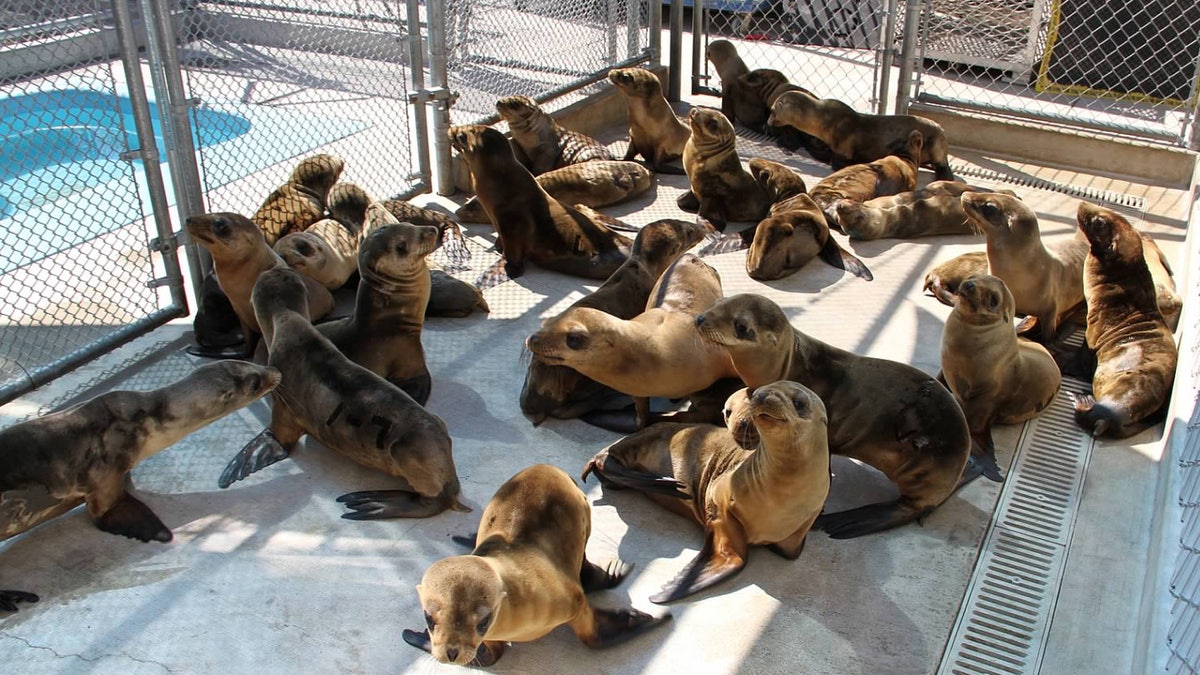
FILE - This undated image provided by the Pacific Marine Mammal Center shows rescued sea lion pups in Laguna Beach, Calif. Federal officials say starving sea lion pups are washing up on Southern California beaches at a rate more than five times higher than the historical average, and scientists are still scrambling to figure out why according to officials, Wednesday, April 17, 2013.(AP Photo/Pacific Marine Mammal Center) (The Associated Press)
LOS ANGELES – Starving sea lion pups are washing up on Southern California beaches at a rate more than five times higher than usual, and scientists are scrambling to figure out why, officials said Wednesday.
Since the beginning of the year, 1,293 emaciated sea lions found stranded on beaches from San Diego to Santa Barbara have been treated at seven facilities in the state, Sarah Wilkin of the National Oceanic and Atmospheric Administration said during a conference call with reporters.
Last month, the agency declared an "unusual mortality event" that allowed more scientists to help search for the cause.
A leading hypothesis is lack of available food. Researchers were also doing tests to see if pollution, disease outbreak or algae bloom are to blame.
Most of the pups being treated weighed between 20 and 30 pounds when they were found, with some as small as 18 pounds. The animals should weigh about 65 pounds by now, she said.
As many as 25 percent of the seals have died after being brought in for treatment.
The surviving seals are slowly brought up to a normal body weight and monitored to make sure they can find prey on their own and compete with other animals in tanks.
The goal is to get them healthy enough to be released back into the wild. Such releases are happening daily at some facilities, Wilkins said.
At least two released seals outfitted with monitoring tags have been tracked diving and foraging normally in their regular habitat.
Three animals that were released washed up on beaches again and have since been deemed non-releasable. Officials are trying to find homes for them at aquariums or zoos.
Anyone who sees a sea lion that has been swept ashore — dead or alive — is asked to call the nearest marine mammal center. Authorities say people should not touch the animal or let a pet near it, because sea lions can bite.

